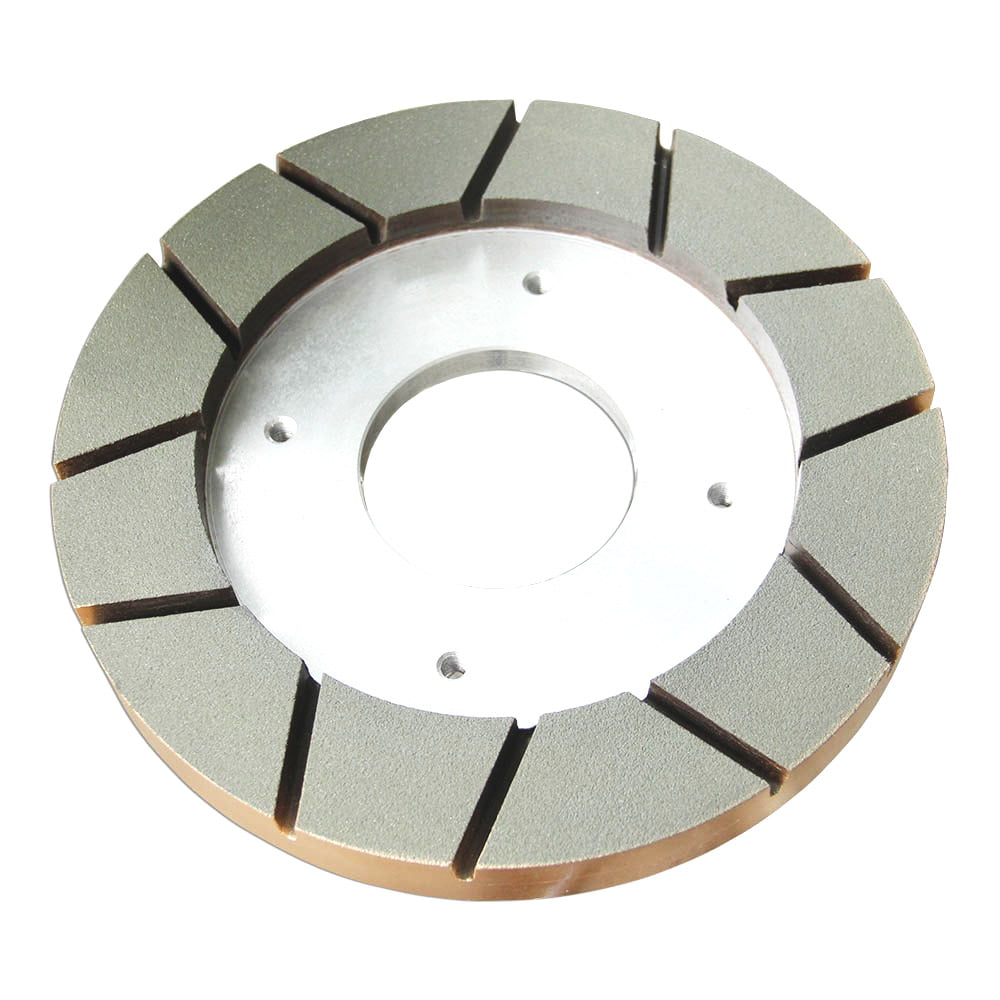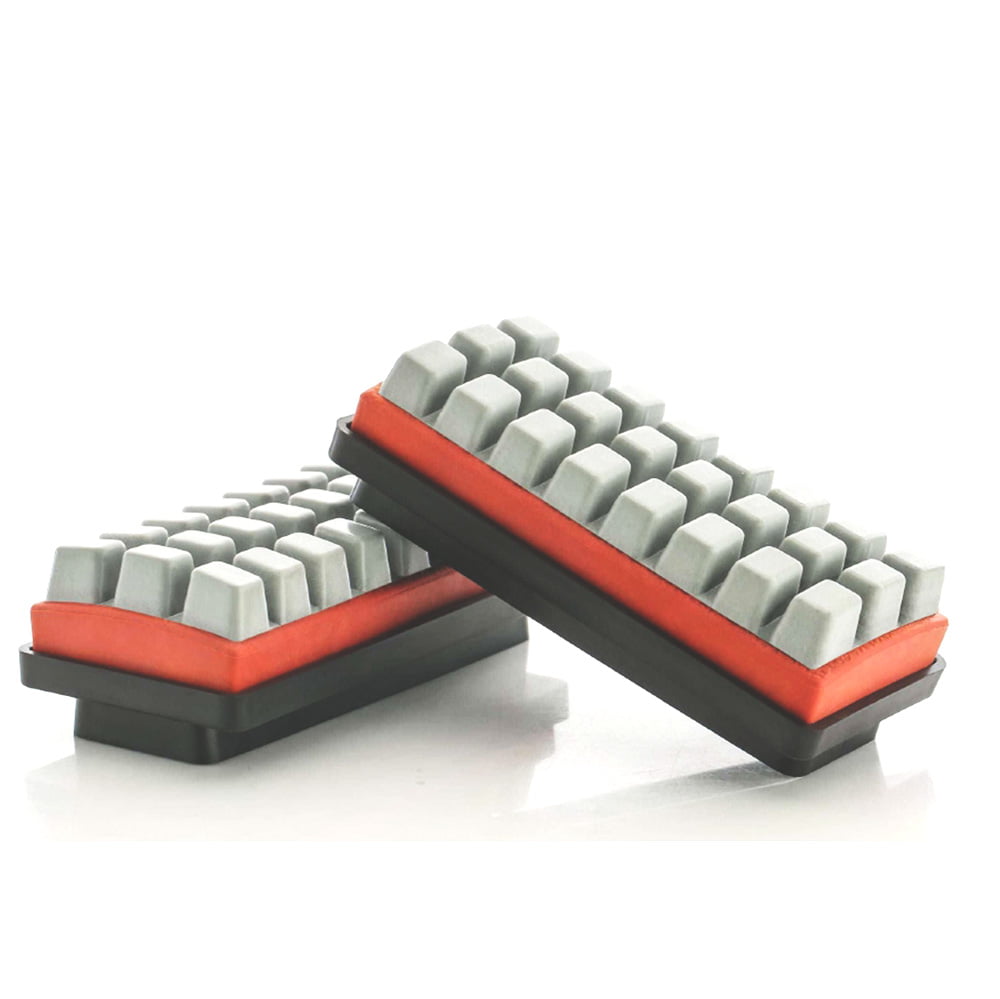Dry squaring wheels play a crucial role in the ceramic tile manufacturing process, ensuring precision and quality in tile edge finishing. As the industry continues to evolve, these specialized tools have become indispensable for producers aiming to meet exacting standards and consumer expectations.
The importance of dry squaring wheels in ceramic tile production cannot be overstated. They are essential for achieving uniform tile dimensions, crisp edges, and smooth finishes. This article will explore the intricacies of dry squaring wheels, their applications, and the benefits they bring to the ceramic tile industry.
Dry squaring wheels are specialized grinding tools designed specifically for shaping and finishing ceramic tile edges without the need for water or coolants. These wheels, embedded with diamond particles in a metal or resin bond, offer superior durability and precision in tile edge processing. Their ability to operate in dry conditions makes them ideal for use in modern tile manufacturing facilities where water usage may be limited or impractical.
"Dry squaring wheels revolutionize ceramic tile production by enabling precise, efficient, and high-quality edge processing without the need for water or coolants."
Before delving into the specific aspects of dry squaring wheels, let's take a look at a comparison of different types of grinding wheels used in ceramic tile production:
| Wheel Type | Abrasive Material | Bond Type | Cooling Method | Edge Finish Quality |
|---|---|---|---|---|
| Dry Squaring | Diamond | Metal/Resin | None | Excellent |
| Wet Grinding | Silicon Carbide | Vitrified | Water | Good |
| Resin Bond | Diamond | Resin | Optional | Very Good |
| Metal Bond | Diamond | Metal | Optional | Excellent |
Now, let's explore the various aspects of dry squaring wheels in more detail.
What makes dry squaring wheels unique in ceramic tile production?
Dry squaring wheels stand out in the ceramic tile industry due to their specialized design and functionality. These wheels are engineered to operate without water or coolants, making them ideal for use in modern tile manufacturing facilities where water usage may be limited or impractical.
The unique composition of dry squaring wheels, featuring diamond particles embedded in a metal or resin bond, allows for superior grinding performance and longevity. This combination ensures that the wheels can maintain their shape and cutting efficiency over extended periods, even when processing large volumes of tiles.
"The diamond-embedded composition of dry squaring wheels provides unparalleled durability and consistent performance in high-volume tile production environments."
| Feature | Benefit |
|---|---|
| Diamond abrasive | Superior hardness and cutting efficiency |
| Dry operation | Reduced water consumption and simplified processing |
| Metal/resin bond | Extended wheel life and consistent performance |
How do dry squaring wheels contribute to tile edge quality?
The primary function of dry squaring wheels is to ensure precise and uniform tile edges. This is crucial for producing tiles that meet strict dimensional standards and aesthetic requirements. The wheels' diamond abrasives work to grind and shape the tile edges, removing any irregularities or excess material.
By using dry squaring wheels, manufacturers can achieve consistently square edges, precise dimensions, and smooth finishes. This level of precision is essential for creating tiles that fit together seamlessly during installation, reducing the likelihood of gaps or misalignments.
"Dry squaring wheels enable manufacturers to achieve tile edges with exceptional precision, contributing to improved installation quality and overall product aesthetics."
| Edge Quality Aspect | Impact on Tile |
|---|---|
| Squareness | Ensures proper fit during installation |
| Smoothness | Enhances visual appeal and reduces chipping |
| Dimensional accuracy | Facilitates uniform grout lines |
What are the environmental benefits of using dry squaring wheels?
One of the most significant advantages of dry squaring wheels is their ability to operate without water or coolants. This characteristic offers several environmental benefits that align with modern sustainability goals in manufacturing.
By eliminating the need for water in the grinding process, dry squaring wheels help conserve this precious resource. Additionally, the absence of water in the process reduces the generation of slurry waste, which can be challenging and costly to manage and dispose of properly.
"The use of dry squaring wheels in ceramic tile production contributes to water conservation efforts and reduces the environmental impact associated with slurry waste management."
| Environmental Aspect | Benefit of Dry Squaring Wheels |
|---|---|
| Water usage | Significant reduction or elimination |
| Waste generation | Decreased slurry waste production |
| Energy consumption | Potential reduction in water pumping and treatment |
How do dry squaring wheels impact production efficiency?
Dry squaring wheels can significantly enhance production efficiency in ceramic tile manufacturing. Their ability to operate continuously without the need for water-based cooling systems reduces downtime associated with water management and cleanup.
Furthermore, the durability of diamond-embedded dry squaring wheels means they can process a large number of tiles before requiring replacement. This extended lifespan translates to fewer wheel changes and less production interruption.
"The use of dry squaring wheels can lead to increased production throughput and reduced downtime in ceramic tile manufacturing facilities."
| Efficiency Factor | Impact of Dry Squaring Wheels |
|---|---|
| Processing speed | Potential for higher throughput |
| Wheel lifespan | Reduced frequency of wheel changes |
| Maintenance requirements | Simplified due to absence of water systems |
What considerations are important when selecting dry squaring wheels?
Choosing the right dry squaring wheel is crucial for optimal performance in ceramic tile production. Factors such as the type of tile being processed, the desired edge finish, and the production volume all play a role in wheel selection.
Manufacturers must consider the grit size of the diamond abrasives, the bond type (metal or resin), and the wheel's overall design. These factors influence the wheel's cutting efficiency, lifespan, and the quality of the finished tile edges.
"Proper selection of dry squaring wheels based on specific production requirements is essential for achieving optimal tile edge quality and manufacturing efficiency."
| Selection Factor | Consideration |
|---|---|
| Tile material | Hardness and composition |
| Production volume | Required wheel durability |
| Edge finish requirements | Grit size and wheel design |
How has the adoption of dry squaring wheels influenced tile design trends?
The precision and versatility of dry squaring wheels have opened up new possibilities in tile design. Manufacturers can now produce tiles with more intricate edge profiles, including beveled edges and other decorative features, with greater consistency and efficiency.
This capability has led to an expansion in tile design options, allowing for more creative and aesthetically pleasing tile products. The ability to achieve precise and uniform edges also facilitates the production of large-format tiles, which have become increasingly popular in modern interior design.
"Dry squaring wheels have enabled ceramic tile manufacturers to explore new design possibilities, including intricate edge profiles and large-format tiles, expanding the creative potential of tile products."
| Design Trend | Enabled by Dry Squaring Wheels |
|---|---|
| Beveled edges | Precise and consistent chamfering |
| Large-format tiles | Accurate squaring of larger dimensions |
| Decorative edge profiles | Versatility in edge shaping |
What future developments can we expect in dry squaring wheel technology?
As the ceramic tile industry continues to evolve, so too will the technology behind dry squaring wheels. Future developments may focus on enhancing wheel durability, improving cutting efficiency, and expanding the range of materials that can be processed.
Advancements in diamond synthesis and bonding technologies may lead to even more durable and efficient dry squaring wheels. Additionally, we may see the development of smart wheels with built-in sensors for monitoring wear and performance, enabling predictive maintenance and optimized wheel usage.
"The future of dry squaring wheel technology is likely to bring increased durability, efficiency, and smart features, further enhancing their role in ceramic tile production."
| Potential Development | Expected Benefit |
|---|---|
| Advanced diamond composites | Enhanced wheel lifespan and cutting efficiency |
| Smart sensor integration | Improved maintenance scheduling and performance optimization |
| Expanded material compatibility | Versatility in processing various tile types |
In conclusion, dry squaring wheels have become an integral part of modern ceramic tile production, offering precision, efficiency, and environmental benefits. Their ability to deliver high-quality tile edges without the need for water or coolants has revolutionized the industry, enabling manufacturers to meet exacting standards while reducing their environmental impact.
As the ceramic tile industry continues to evolve, the role of dry squaring wheels is likely to grow even more significant. Their contribution to product quality, design versatility, and production efficiency makes them an invaluable tool for manufacturers striving to meet the demands of today's discerning consumers and sustainability-conscious markets.
For those seeking high-quality dry squaring wheels for ceramic tile production, BASAIR Tools offers a range of premium options designed to meet the diverse needs of tile manufacturers. Their expertise in diamond tool technology ensures that you can find the right solution for your specific production requirements.



